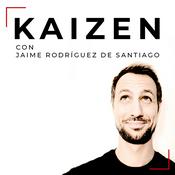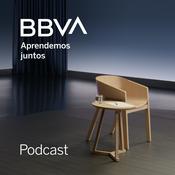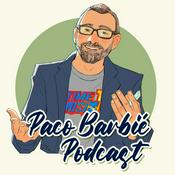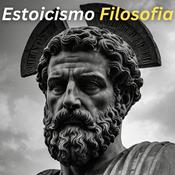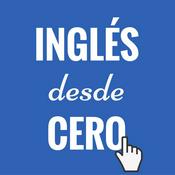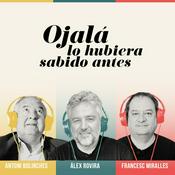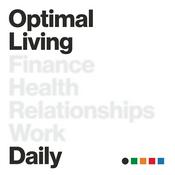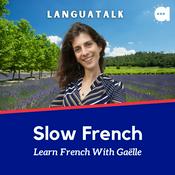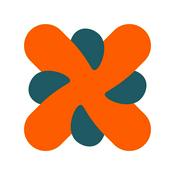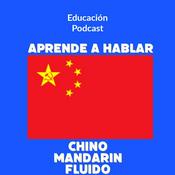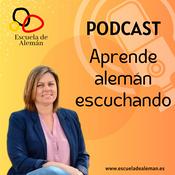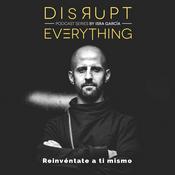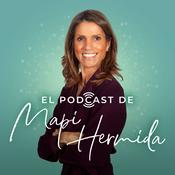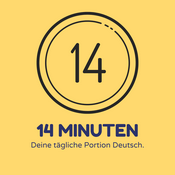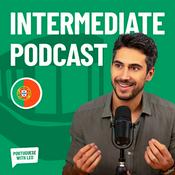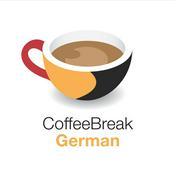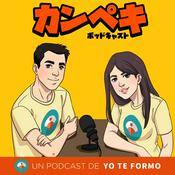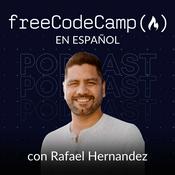206 episodios
- Today Quincy Larson interviews Shawn Wang. He's a software engineer, founder of the AI Engineer conference, and host of the Latent Space podcast focused on applying the latest models toward getting work done.
We talk about:
- How even if LLMs plateau, there will be still paths to better output through surrounding harness code
- And three big areas researchers are exploring to further improve model performance: World Models, Multi-modality, and Embodied AI
- Which skills Shawn thinks are most important for developers going forward
- And why Shawn thinks you should switch your own self teaching from "just-in-time learning" to "just-in-case learning"
Support for this podcast comes from the 10,113 kind folks who donate to our charity each month. Join them and support our mission at https://donate.freecodecamp.org
Get a freeCodeCamp tshirt for $20 with free shipping anywhere in the US: https://shop.freecodecamp.org
Links from our discussion:
- Shawn's Tiny Teams Playbook: https://www.latent.space/p/tiny
- Shawn's interview with FeiFei Li: https://www.latent.space/p/after-llms-spatial-intelligence-and?utm_source=publication-search
- Boots Theory: https://en.wikipedia.org/wiki/Boots_theory
- Wirth's Law: https://en.wikipedia.org/wiki/Wirth%27s_law
- Adversarial Reasoning: https://www.latent.space/p/adversarial-reasoning
Community news section:
1. freeCodeCamp just published a comprehensive course that will teach you how to use the security-focused Kali Linux operating system. You'll learn how to identify, exploit, and defend against real-world vulnerabilities. You'll also build a solid foundation in penetration testing, network security, and vulnerability assessment. Most importantly, you'll learn how to think like a security engineer and leverage tools of the trade like Nmap and Wireshark. (4 hour YouTube course): https://www.freecodecamp.org/news/learn-cybersecurity-and-ethical-hacking-using-kali-linux/
2. freeCodeCamp also published a guide to passing the Certified Kubernetes Administrator Exam. Beau Carnes teaches this course, which will walk you through key DevOps concepts. You'll start by setting up your K8s practice environment. Then you'll bootstrap a multi-node cluster and your control plane. You'll learn about Helm, High Availability Autoscaling, CoreDNS, and more. (2 hour YouTube course): https://www.freecodecamp.org/news/prepare-for-the-kubernetes-administrator-certification-and-pass/
3. We also just published a full-length handbook on freeCodeCamp Press that you can read right in your browser. It will teach you modern React data fetching best practices. You'll learn how to leverage Suspense, ErrorBoundary, and the new Use API. If you're interested in web development, this is well worth bookmarking. (full length handbook): https://www.freecodecamp.org/news/the-modern-react-data-fetching-handbook-suspense-use-and-errorboundary-explained/
5. Finally, I'm proud to share this new DevOps course that freeCodeCamp instructor Gavin Lon just published. You'll learn how to take a full stack app on your local machine and ship it to a fully containerized production environment. Along the way, you'll learn about CI/CD pipelines, Docker images, launching containers, and more. By the end of the course, you'll have a professional-grade pipeline that automatically builds and deploys updates with every push. (4 hour YouTube course): https://www.freecodecamp.org/news/build-a-production-ready-pipeline-with-docker-cicd-and-hostinger/
5. Today's song of the week is the 1980 classic "Turn me Loose" by Canadian band Loverboy. Build on top of a super catchy syncopated bassline, this song has some super expressive vocals, buzzing synths, percussive piano, and the guitar solo is top shelf. https://www.youtube.com/watch?v=TnHm4ro_l8s #207 Why maintaining a codebase is so damn hard – with OhMyZSH creator Robby Russell
13/2/2026 | 1 h 23 minToday Quincy Larson interviews Robby Russell. Robby created the open-source project Oh My ZSH.
Oh My Zsh is a framework for managing your Zsh configuration for your command line terminal. It's been extremely popular among developers for more than a decade.
Robby is also the CEO of Planet Argon, a software consultancy he created two decades ago. He's done work for Nike and lots of other companies.
Note that this discussion is aimed at more advanced devs and engineering managers.
We talk about:
- How a "Don't let that happen again" culture can make it take forever to get new code into production, and how to reverse this
- Tips for reducing your team's dependency on that one developer who's been there for years
- Robby's perspective on LLM tools and how they're speeding up his workflows
Support for this podcast comes from the 10,113 kind folks who donate to our charity each month. Join them and support our mission at https://donate.freecodecamp.org
Get a freeCodeCamp tshirt for $20 with free shipping anywhere in the US: https://shop.freecodecamp.org
Links from our discussion:
- My previous interview of Robby with his full journey: from painting houses to running a popular open source tool (2 hour listen): https://www.freecodecamp.org/news/podcast-oh-my-zsh-creator-and-ceo-robby-russell/
- Robby reading his classic "d'Oh My Zshell" article recording on an older freeCodeCamp podcast episode: https://freecodecamp.libsyn.com/site/ep-34-doh-my-zsh
- A recent interview Robby did with Kent Beck, the software engineer who created the Extreme Programming agile methodology, on his Maintainable Podcast: https://maintainable.fm/episodes/kent-l-beck-youre-ignoring-optionality-and-paying-for-it
- Robby's Robby on Rails blog he's been maintaining for over 20 years: https://robbyonrails.com/links/
- Robby's "On Rails" podcast, the official podcast of the Ruby on Rails framework: https://onrails.buzzsprout.com/
- The Mighty Missoula (Robby's Post Rock band): https://mightymissoula.com/
- The Ghostty cross-platform terminal that Robby recommended: https://ghostty.org/
- The fzf command line fuzzy finder tool Robby recommended: https://github.com/junegunn/fzf
- The new omarchy Linux distribution Robby recommended: https://omarchy.org/
Community news section:
1. Learn to code in Python from one of the greatest living Computer Science professors, Harvard's David J. Malan. This is the 2026 version of the famous CS50 course. It will teach you Python programming fundamentals like functions, conditionals, loops, libraries, file I/O, and more. If you're new to Python, or to coding in general, this is an excellent place to start. (25 hour YouTube course): https://www.freecodecamp.org/news/harvard-cs50-2026-free-computer-science-university-course
2. That Harvard computer science course will get you started with programming. But where do you go from there? freeCodeCamp just published a helpful tutorial that will help you bridge from beginner projects to building real-world applications that solve real-world problems. (40 minute read): https://www.freecodecamp.org/news/how-to-go-from-hello-world-to-building-real-world-applications/
3. freeCodeCamp also just published a comprehensive intro to OpenClaw. If you've heard of Clawd Bot or Moltbot, this is the same tool, which they renamed to avoid confusion with the Claude LLM tool. OpenClaw is an agent and messaging gateway that lets you automate digital tasks through platforms like Discord. First you'll learn how to set it up. Then you'll learn security practices like implementing Docker-based sandboxing to protect your host system while your agent executes complicated workflows on your behalf. (1 hour YouTube course): https://www.freecodecamp.org/news/openclaw-full-tutorial-for-beginners
4. You may be using Bluetooth as you read this. It's been a key networking tool since 1999, and now it's getting 3 major upgrades: Passive Scanning, Bond Loss Reasons, and propagation of Service UUIDs. If you're interested in network engineering or IoT–style devices, this tutorial is well worth your read. (90 minute read): https://www.freecodecamp.org/news/how-aosp-16-bluetooth-scanner-works-the-ultimate-guide/
5. Today's song of the week is 2009 banger Sometimes by Australian band Miami Horror. I love the layers Peter Hooke-style guitar riff, the anthemic snyths, and the driving bassline. This is a perfect song to start of your morning. https://www.youtube.com/watch?v=Fn7FXGaHTNs#206 Tips from a 20-year developer veteran turned consultancy founder – Tapas Adhikary interview
29/1/2026 | 1 h 19 minToday Quincy Larson interviews Tapas Adhikari. He's a software engineer who runs a firm of 20 developers who build projects for companies around the world. He's also a prolific teacher, having written 300 programming tutorials - including 47 for freeCodeCamp – and runs a popular English and Bangla-language YouTube channels.
We talk about:
- The changing nature of software engineering
- Tips for building your own fully-remote software development firm and landing clients abroad
- Lessons from mentoring more than 500 developers over the years
Support for this podcast comes from the 10,104 kind folks who donate to our charity each month. Join them and support our mission at https://donate.freecodecamp.org
Get a freeCodeCamp tshirt for $20 with free shipping anywhere in the US: https://shop.freecodecamp.org
Links from our discussion:
- Tapas's handbook on how to get started contributing to open source projects (required reading IMHO): https://www.freecodecamp.org/news/a-practical-guide-to-start-opensource-contributions/
- Tapas's many tutorials and handbooks on freeCodeCamp: https://www.freecodecamp.org/news/author/atapas/
- The developer firm Tapas co-founded and nows runs with more than a dozen developers: https://www.creowis.com/
- Tapas's personal website: https://www.tapasadhikary.com/
- Tapas's English-langauge programming tutorial YouTube channel: https://www.youtube.com/@tapasadhikary
Community news section:
1. freeCodeCamp just published a new Python Data Structures & Algorithms course that will help you understand key Dynamic Programming patterns. These approaches come up all the time in technical interviews. You'll learn Constant Transition, the Grid Pattern, Two Sequences, Interval DP, Non-Constant Transition, Knapsack-like problems, and more. (2 hour YouTube course): https://www.freecodecamp.org/news/learn-dynamic-programming-through-dynamic-visuals/
2. If you're interested in building projects on top of Large Language Models, freeCodeCamp just published a Python course on Retrieval-Augmented Generation (RAG). You'll learn how to turn documents into embeddings then store them in vector databases. The course will also walk you through building your own Model Context Protocol (MCP) server. (2 hour YouTube course): https://www.freecodecamp.org/news/learn-rag-and-mcp-fundamentals/
3. Learn How Execution Context Works in JavaScript. If you're a JS dev, this is essential reading. You'll learn about interpretation vs compilation. Then you'll see how Node.js and the V8 engine load and execute code. (full length handbook): https://www.freecodecamp.org/news/how-execution-context-works-in-javascript-handbook/
4. Finally, this weekend you can build your own fully-playable horror game based on the legendary "The Backrooms" liminal space. For some reason my kids are terrified of this weirdly normal-looking office setting. You'll build your own environment using Unreal Engine 5 and the Blueprints visual scripting tool that abstracts away all the C++ code for you. Throw in a body-cam style camera perspective and some creepy monsters and you'll have the perfect way to scare friends and family alike. (3 hour YouTube course): https://www.freecodecamp.org/news/build-a-the-backrooms-game-in-unreal-engine-5/
5. Today's song of the week is And the Cradle Will Rock off Van Halen's 1980 album Women and Children first. The song starts out with a groove on a heavily distorted Wurlitzer elctromechanical piano. I love Michael Anthony's 8th note bassline and the loose high hats under Eddie Van Halen's guitar solo. This is a great lunch break song. https://www.youtube.com/watch?v=11mBDT5mpdw- Today Quincy Larson interviews Sumit Saha, a software engineer and prolific teacher on YouTube. Sumit is based in Dhaka, Bangladesh, where he runs a developer agency building projects for clients throughout Asia.
We talk about:
- How the hunger for learning is dying and people are increasingly drawn to shortcuts over taking the time to truly understand concepts
- Sumit's information diet and his tips for expanding your skills
- 5 key developer concepts explained like you're 5
Support comes from the 10,104 kind folks who donate to our charity each month. Join them and support our mission at https://donate.freecodecamp.org
Get a freeCodeCamp tshirt for $20 with free shipping anywhere in the US: https://shop.freecodecamp.org
Links from our discussion:
- Sumit's many freeCodeCamp handbooks and tutorials: https://www.freecodecamp.org/news/author/sumitsaha/
- Sumit's website: https://www.sumitsaha.me/
- Sumit's Bangla-language YouTube Channel: https://youtube.com/@LearnwithSumit
- Sumit's English YouTube Channel: https://youtube.com/@logicBaseLabs
Community news section:
1. I spent three days at the San Francisco Palace of Fine Arts recording a documentary about the world's largest collegiate hackathon. More than 3,000 student developers participated in this year's UC Berkeley Cal Hacks hackathon. Over the course of 36 hours, they built a broad array of projects, then demo'd them to judges from industry. I now present to you the finished documentary. I hope you find it both enjoyable and inspiring. (80-minute documentary): https://www.freecodecamp.org/news/inside-cal-hacks-2025-36-hours-at-the-worlds-largest-collegiate-hackathon/
2. freeCodeCamp also published a new course on building your own custom Kubernetes operators and controllers from scratch. You'll learn everything from the internal architecture of Informers and Caches to advanced concepts like Finalizers and Idempotency. If you're interested in DevOps, this is the course for you. (6 hour YouTube course): https://www.freecodecamp.org/news/build-your-own-kubernetes-operators-with-go-and-kubebuilder/
3. Learn how to select the best GPU for economically training your models and running inference workloads. This no-nonsense guide will help you understand why certain specs matter more than others. It will also help you navigate around common pitfalls when buying or renting GPUs. (35 minute read): https://www.freecodecamp.org/news/how-to-choose-the-best-gpu-for-your-ai-workloads/
4. Learn how to benchmark embedding models using your own custom data. This course will walk you through leveraging Vision Language Models for precise text extraction. You'll also learn how to use LLMs to generate synthetic evaluation data. Finally, you'll get exposure to the rigorous statistical tests that can help you find the best models for whatever hardware you have on hand. (4 hour YouTube course): https://www.freecodecamp.org/news/how-to-benchmark-embedding-models-on-your-own-data/
5. Our song of the week: Supergroup The Power Station's 1985 hit "Some Like it Hot". This entire album features incredible drumming by Chic drummer Tony Thompson. And with Bass and Guitars by Duran Duran's John Taylor and Andy Taylor, the whole song has insane groove. 80s icon Robert Palmer sings and brings the texture. The guy reportedly smoked 60 cigarettes a day and paid the price a few years later, but man is his voice golden on this recording. Fun fact: Duran Duran's official site says they achieved the massive drum sound by putting mics at the top of a nearby elevator shaft. https://www.youtube.com/watch?v=Hw1t7OCESUw #204 The Most Important Skills Going Forward with CTO + Homebrew Maintainer Mike McQuaid
16/1/2026 | 1 h 27 minToday Quincy Larson interviews Mike McQuaid. He's a software engineer who previously worked at GitHub, and now serves as lead maintainer of Homebrew, a Mac package manager used by tens of millions of developers. He's based in Edinburgh, Scottland. He's worked remotely as a dev for nearly two decades.
We talk about:
- What does a career in open source really look like
- What skills are going to be the most important going forward
- How big open source infrastructure really gets written and maintained
Support for this podcast is provided by a grant from AlgoMonster. AlgoMonster is a platform that teaches data structure and algorithm patterns in a structured sequence, so you can approach technical interview questions more systematically. Their curriculum covers patterns like sliding window, two-pointers, graph search, and dynamic programming, helping you learn each pattern once and apply it to solve many problems. Start a structured interview prep routine at https://algo.monster/freecodecamp
Support also comes from the 10,104 kind folks who donate to our charity each month. Join them and support our mission at https://donate.freecodecamp.org
Get a freeCodeCamp tshirt for $20 with free shipping anywhere in the US: https://shop.freecodecamp.org
Links from our discussion:
- Mike's podcast, Minimum Viable Management: https://www.youtube.com/playlist?list=PLdx6vnBOYrMZw3ZHjJJyItqQuZQhTIzhc
- Homebrew 5.0 announcement with changelog: https://brew.sh/2025/11/12/homebrew-5.0.0/
- POSSE approach to social media: https://indieweb.org/POSSE
Community news section:
1. freeCodeCamp just published a book that will teach you the math that powers most AI systems. Even if you haven't studied math since high school, you may find this book helpful in expanding your understanding of the layers of abstraction underpinning these emerging tools. You'll learn key concepts in statistics, linear algebra, calculus, and optimization theory. You'll also get a healthy dose of mathematical history. (free full-length book): https://www.freecodecamp.org/news/the-math-behind-artificial-intelligence-book/
2. And if you're finding the sudden surge in AI tools to be overwhelming, freeCodeCamp just published this practical guide to using them effectively. This tutorial will separate the utility from the hype. You'll learn how to minimize hallucinations with Context Management. You'll also learn about agentic tools and in-editor assistants. It even has tips for how to prevent your own developer skills from atrophying, so you can adopt these tools without becoming overly dependent on them. (35 minute read): https://www.freecodecamp.org/news/how-to-not-be-overwhelmed-by-ai/
3. freeCodeCamp also published a course on React Optimization. You'll learn key React design patterns to achieve a screaming-fast front end. This course covers memoization, derived states, throttling, debouncing, concurrency, virtualization, and more. (2 hour YouTube course): https://www.freecodecamp.org/news/how-to-optimize-react/
4. Learn modern music production using the popular FruityLoops Studio Digital Audio Workstation tool. This FL Studio course will teach you sound design fundamentals, mixing, filters, drum sequencing, basslines, synth melodies, and even advanced concepts like kick drum ducking. You can play along at home and by the end of the course you'll have your own bass house track you can share with your friends. (3 hour YouTube course): https://www.freecodecamp.org/news/learn-music-production-with-fl-studio/
5. This week's song of the week is the 2022 song "Ditto" by Korean pop group New Jeans. I like the song feels slow and relaxed even though the tempo is really fast. It has really minimalist production - mainly just 808 drums and vocals. Perfect late night listening. https://www.youtube.com/watch?v=V6TEcoNUmc8
Más podcasts de Educación
Podcasts a la moda de Educación
Acerca de The freeCodeCamp Podcast
The official podcast of the freeCodeCamp.org open source community. Each week, freeCodeCamp founder Quincy Larson interviews developers, founders, and ambitious people in tech.
Learn to math, programming, and computer science for free, and turbo-charge your developer career with our free open source curriculum: https://www.freecodecamp.org
Sitio web del podcastEscucha The freeCodeCamp Podcast, kaizen con Jaime Rodríguez de Santiago y muchos más podcasts de todo el mundo con la aplicación de radio.es
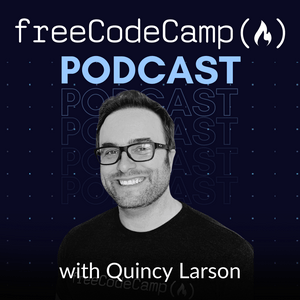
Descarga la app gratuita: radio.es
- Añadir radios y podcasts a favoritos
- Transmisión por Wi-Fi y Bluetooth
- Carplay & Android Auto compatible
- Muchas otras funciones de la app
Descarga la app gratuita: radio.es
- Añadir radios y podcasts a favoritos
- Transmisión por Wi-Fi y Bluetooth
- Carplay & Android Auto compatible
- Muchas otras funciones de la app


The freeCodeCamp Podcast
Escanea el código,
Descarga la app,
Escucha.
Descarga la app,
Escucha.


